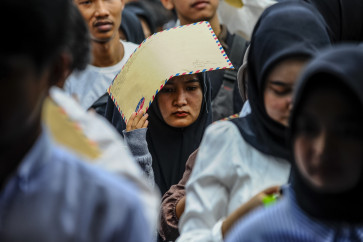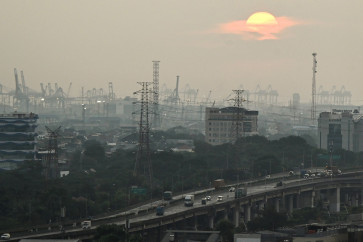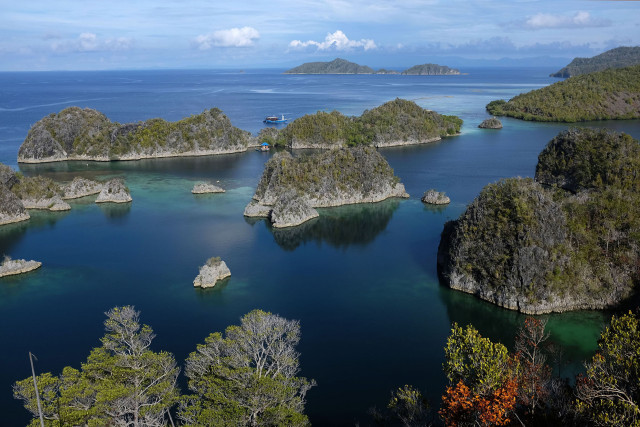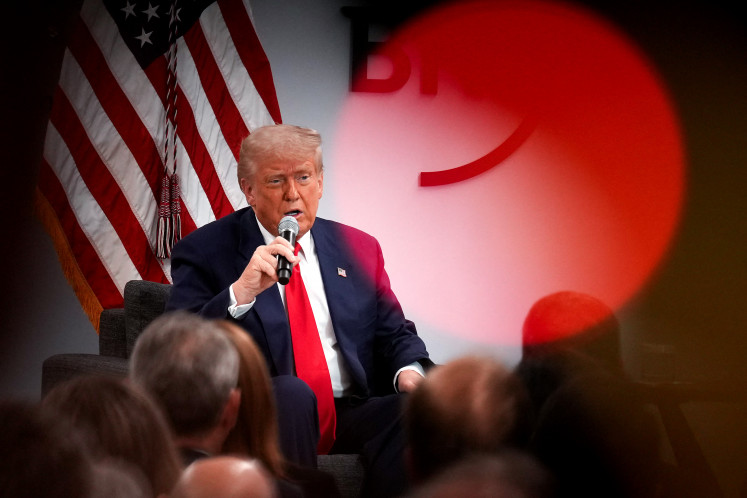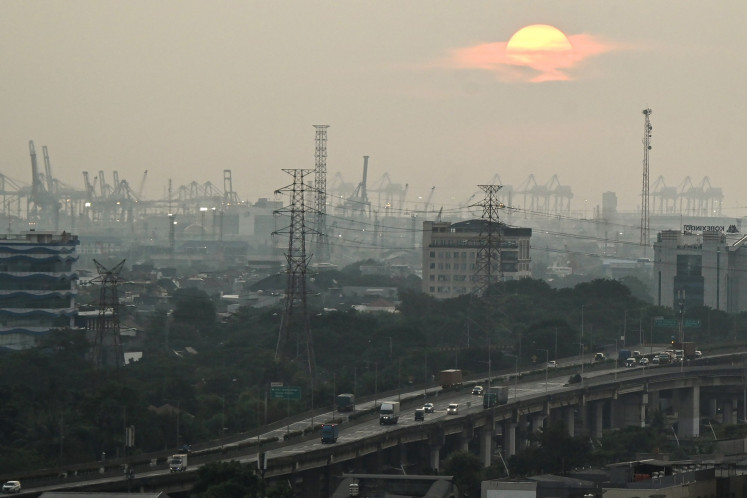'Modi'-fying growing India-Indonesia ties
While Modi is seeking reelection, Jokowi’s successor is expected to take the reins pushing his infrastructure momentum agenda ahead.
Change text size
Gift Premium Articles
to Anyone
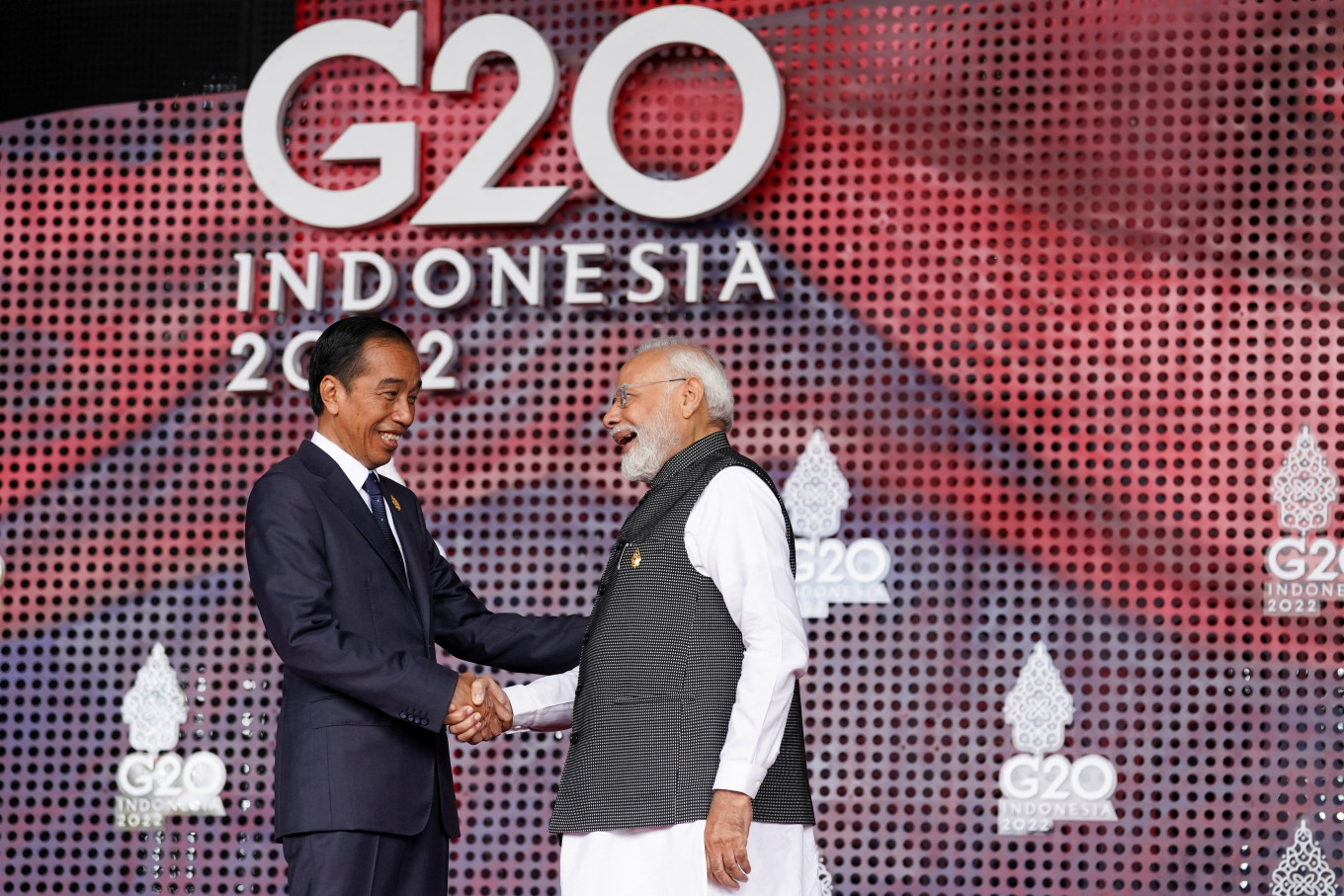
T
he relationship between India and Indonesia has been equitable, long and time-tested, with several similarities existing between the two nations, in terms of culture and demographics. They can also be counted among the few economies that continue to remain resilient despite the uncertain macro environment.
While high-level policy decisions have kicked off between the two in the last few years, the high trade numbers and increasing investment are a clear indicator of the rise in affinity that is being seen at the business-to-business and even government-to-government levels. Two leaders with a similar tale to tell.
Prime Minister Narendra Modi and President Joko “Jokowi” Widodo, both come from humble backgrounds and have the same developmental push, and thus their journeys as leaders have seen similar growth. For the two popular leaders, manufacturing and infrastructure have been key priorities, and which have seen a tremendous upsurge in the last decade in India and Indonesia.
The world’s largest and third-largest democracies are also months away from arguably their most momentous electoral decisions. While Modi is seeking reelection, Jokowi’s successor is expected to take the reins pushing his infrastructure momentum agenda ahead.
Modi first visited Jakarta in 2018 and signed a comprehensive strategic partnership. The pact highlighted issues around maritime, defense and economic cooperation. Jokowi too, truly believed that good India-ASEAN relations were set to create a lot of prosperity in the Indo-Pacific region and indeed they did.
Fast forward five years, Modi is visiting Jakarta, affirming his strong ties with ASEAN and emphasizing India's supportive role in the Indo-Pacific policy. Media reports also indicate that the ASEAN-India and East Asia summits this week are also expected to review the progress of India-ASEAN relations and chalk out a promising future for the partnership. There is no doubt that political heads are playing a big role in ensuring that India-Indonesia relations reach a new high.
Riding on the commodity wave, trade between the two countries stands at more than US$38 billion, surpassing Singapore and making Indonesia India's largest trading partner in ASEAN. India imports crude oil and coal from Indonesia and exports refined petroleum products, commercial vehicles, telecommunication equipment, bovine meat, animal feed, agriculture products, steel and plastics to Indonesia.
Both countries have also set a target of $50 billion in trade volume by 2025 or earlier. Experts say that the future will not only see commodity-driven trade but other sectors like health care, auto and energy also start to see growth and investment. However, licenses related to trade have a long requirement list, which makes easy smooth trade challenging.
Apart from palm oil and crude oil, trade between the two countries is set to expand to more commodities like millet, machinery and light engineering. Textiles, chemicals and electric vehicles (EVs) also hold good potential. With Indonesia looking at downstream opportunities to develop the nickel and critical mineral industries to develop EV and manufacturing industry as their top priorities today, many Indian companies are surely going to explore partnership opportunities in this segment.
Indian corporation TVS Motor announced its entry into Indonesia by investing in Singapore-based technology company Ion Mobility which has plans to expand in Singapore and Indonesia.
Health care can be the next big game changer in strengthening this relationship further. The recent reforms proposed by the Indonesian government will allow countries like India to share their expertise in this field, whether this is related to capacity-building health care, manufacturing of drugs, specialty services, digitalization of health care, medical equipment or areas like biomedicine and wellness.
In addition, Indonesia with a big pharmacy market of around $10 billion provides a great investment opportunity for Indian companies to invest in complex active pharmaceutical ingredient production.
India and Indonesia have been strong infrastructure partners for the last few years. Indian infrastructure players like GVK Essar are making a mark in the archipelago with investments in big infrastructure projects like airports and coal mines. Recently Indonesian conglomerate Sinarmas committed to a major investment in India by announcing a $1.2 billion investment in a paper mill project in the Indian state of Maharashtra. Investments made by Indonesian companies like Mayora and Garuda Foods in India are rising along with many established start-ups having tech hubs in India.
Experts say that Indonesia's plan to relocate its capital from Jakarta to East Kalimantan is another area where Indian infrastructure companies can offer appropriate infrastructure and services to Indonesia.
Due to similar demographics and rising middle classes, all the tech and product innovations happening in countries like India have also become equally relevant for the Indonesian market. The proximity to Singapore and growing English familiarity have made it easier for Indians to operate here. More than 30 Indian start-ups have started operations here or expanded in this country with local partners in fields like fintech and social commerce.
India is also working on extending India's Unified Payments Interface to Indonesia. This will enable the Indian diaspora to deal with international borders by scanning QR codes, facilitating quick remittance between countries.
Connectivity has also expanded like never before, with Indigo and Batik recently starting flights connecting Jakarta and Mumbai and Delhi and many more airlines planning to tap the routes in the next few months. In fact, more than 500,000 tourists from India came to Indonesia last year, the highest ever, showing the growing popularity of the beautiful archipelagic nation among Indians.
Indonesia and India are both markets with great opportunities for new ideas and businesses to flourish. If tapped well, Indonesia and India's growing resilient economies can be Asia's biggest growth driver in these uncertain times.
***
The writer is a senior correspondent for Dealstreet Asia, and former contributor with Forbes Indonesia and business journalist with CNBC TV 18 India.

